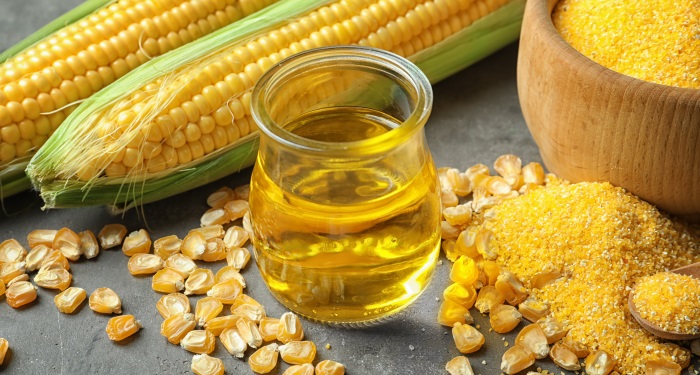Corn oil is a common ingredient in many kitchens and processed foods, often marketed as a heart-healthy choice due to its plant-based origin.
But is it truly a healthy cooking oil, or are there hidden drawbacks? Let’s break it down.
🌽 What Is Corn Oil?
Corn oil is extracted from the germ of corn kernels. It’s refined through a process that involves high heat, chemical solvents (usually hexane), and deodorization to produce a neutral-flavored oil suitable for high-heat cooking.
It’s widely used in frying, baking, and salad dressings, and is also found in many processed and fast foods.
Nutritional Profile
Corn oil is high in:
- Polyunsaturated fats (PUFAs) — Especially omega-6 fatty acids
- Vitamin E — An antioxidant
- Phytosterols — Plant compounds that may help reduce cholesterol levels
One tablespoon of corn oil contains approximately:
- 120 calories
- 14 grams of fat, mostly unsaturated
- 0 grams of carbs or protein
✅ Potential Health Benefits
- Heart Health (Maybe)
- Corn oil contains plant sterols that can help lower LDL (“bad”) cholesterol levels. Some studies suggest this may be beneficial for cardiovascular health.
- Its high PUFA content can help reduce saturated fat intake if used to replace animal fats like butter or lard.
- Neutral Flavor & High Smoke Point
- Great for frying or cooking at high temperatures without producing smoke or off-flavors.
- Rich in Vitamin E
- Vitamin E helps protect cells from oxidative damage and supports skin and immune health.
❌ The Downsides
- High in Omega-6 Fatty Acids
- While omega-6 fats are essential, most modern diets already contain an excess, especially compared to omega-3s (found in fish, flaxseed, and walnuts).
- An imbalance of omega-6 to omega-3 is linked to chronic inflammation, which plays a role in heart disease, arthritis, and other health issues.
- Highly Processed
- The refining process can strip away beneficial compounds and introduce trace chemical residues.
- Compared to cold-pressed oils like extra virgin olive oil, corn oil is more processed and less natural.
- Common in Processed Foods
- Many people consume corn oil unknowingly through packaged snacks, margarine, and fried fast foods—leading to overconsumption.
Should You Use Corn Oil?
Use it in moderation. Corn oil isn’t inherently “bad,” but it’s not a superfood either. Its pros include being cholesterol-free, rich in vitamin E, and affordable. However, its high omega-6 content and heavy processing make it a less-than-ideal choice for everyday cooking, especially if you already eat a lot of processed foods.
🥑 Healthier Alternatives
If you’re looking for better options, consider:
- Extra virgin olive oil — Rich in monounsaturated fats and antioxidants
- Avocado oil — High smoke point and heart-healthy fats
- Coconut oil — Good for baking and adds flavor, though higher in saturated fat
- Canola oil — Lower in omega-6 and still good for high-heat cooking

Is corn oil healthy? It can be part of a balanced diet if used occasionally and mindfully. But if you’re aiming for optimal health and minimal inflammation, it’s wise to limit corn oil and opt for less processed, more balanced fat sources.
Moderation is key. Variety is better. Whole-food fats are best.

